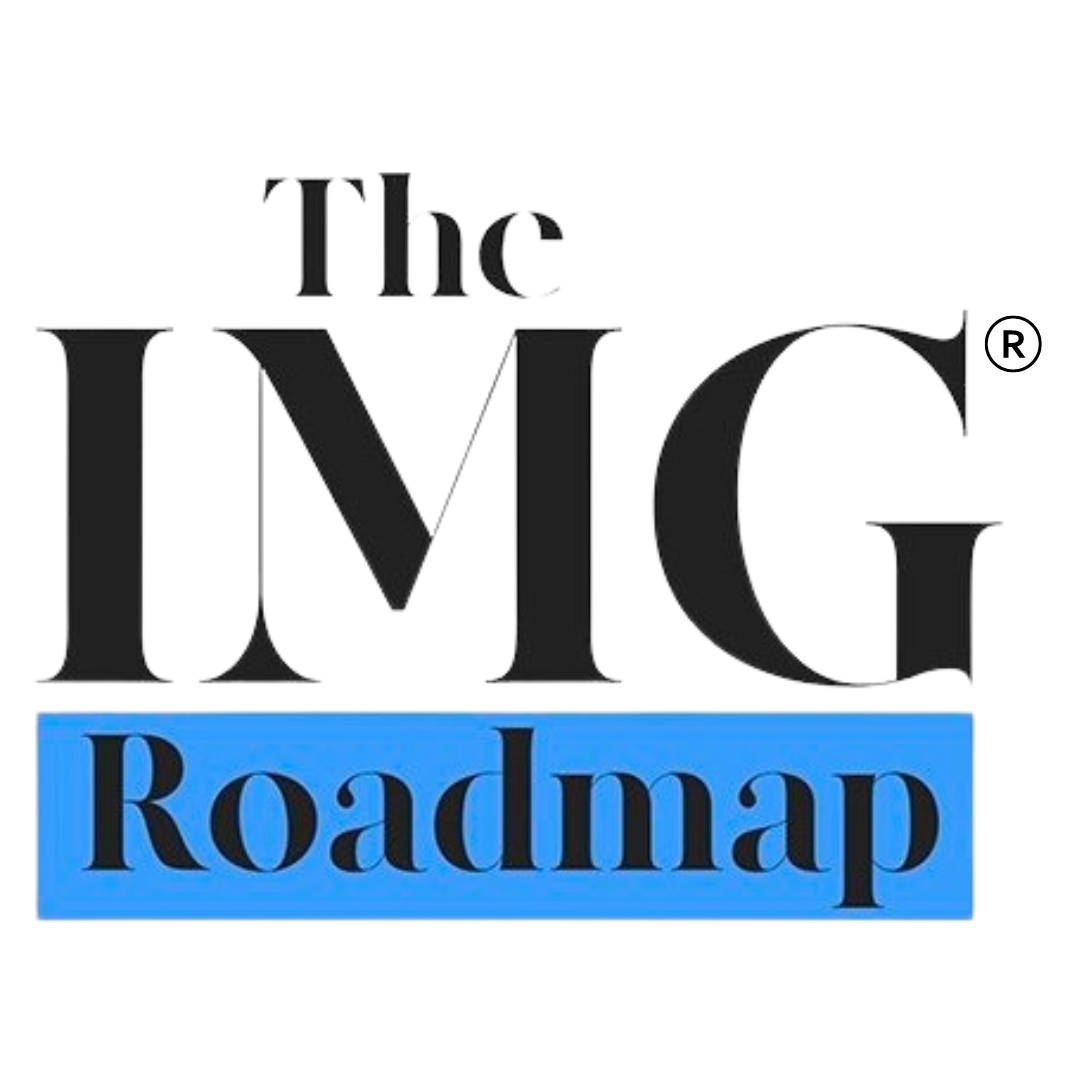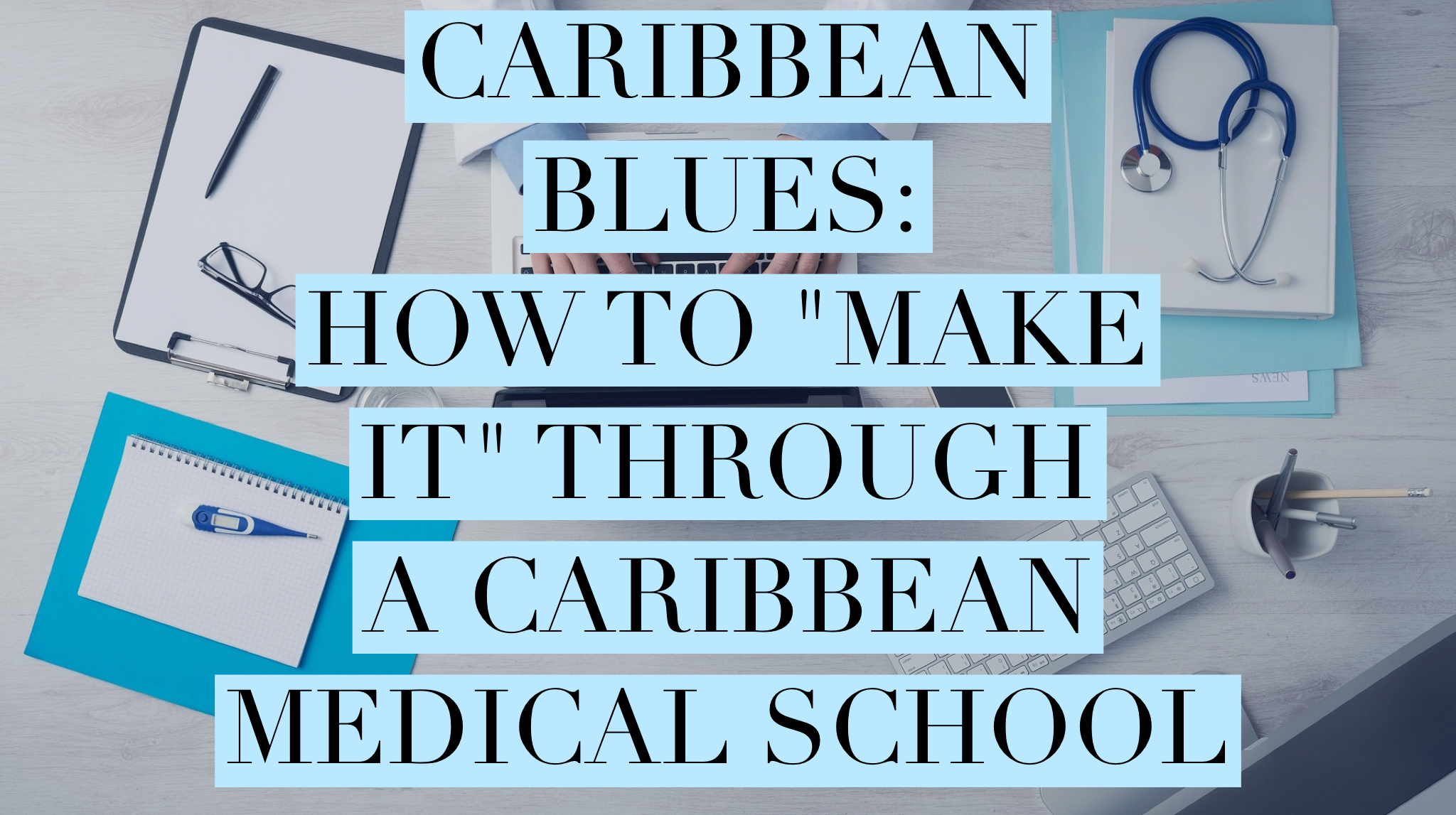Strategies To Succeed In Your Caribbean Medical Education.
 As a product of two Caribbean medical schools, one would agree that my educational course was tortuous. By both observation and personal experience, I learned the processes that differentiate a success story from "failure" in regards to the FMG (Foreign Medical Graduate).This post is dedicated to all those who have already chosen this path. Those actively in the Caribbean for medical education and are already knee deep into it. It could also be helpful for those about to go, but shouldn't be the reason you choose to go.Get it?Okay.I happen to mentor students enrolled in several different Caribbean schools and this is a recurring question that comes up in conversation;" Nina, how did you make it through a Caribbean Medical School into the specialty of your choice? "Before we dive into how, let me share with you a few barriers most Caribbean FMGs experience in medical school. These are things that I have noted to be the primary determinants of potential outcome. It is said that if you know better you do better. So, here is the list of "stumbling blocks" I've noted that are common among FMGs.
As a product of two Caribbean medical schools, one would agree that my educational course was tortuous. By both observation and personal experience, I learned the processes that differentiate a success story from "failure" in regards to the FMG (Foreign Medical Graduate).This post is dedicated to all those who have already chosen this path. Those actively in the Caribbean for medical education and are already knee deep into it. It could also be helpful for those about to go, but shouldn't be the reason you choose to go.Get it?Okay.I happen to mentor students enrolled in several different Caribbean schools and this is a recurring question that comes up in conversation;" Nina, how did you make it through a Caribbean Medical School into the specialty of your choice? "Before we dive into how, let me share with you a few barriers most Caribbean FMGs experience in medical school. These are things that I have noted to be the primary determinants of potential outcome. It is said that if you know better you do better. So, here is the list of "stumbling blocks" I've noted that are common among FMGs.
- Poor Academic Performance.Primarily demonstrated by performance on standardized tests i.e. the USMLE step 1, step 2 CK & CS. Secondary performances include basic science grades. Multiple attempts on either one or more of these tests is a red flag. It doesn’t make your destination (residency) impossible but it may become particularly challenging. Refer to the study strategy section of this post to learn ways to “fix” this.
- Lack of Networking.A deficient knowledge base of the playing field (how/where to secure clinical rotations, electives, and acting internships) and existing options (U.S. clinical experience requirements for those who have none). Refer to the networking strategy in the second part of this document to “fix” this.
- Ignorance of State Licensure Rules & Regulations.Students of Caribbean schools are frequently selective about the amount of information they gather on this topic. It is imperative to verify the US states where graduates from your medical school are ineligible to apply for residency training. This limitation automatically limits your playing field. Knowing ahead helps you strategize and focus on States where you can obtain an unrestricted license to train as a resident. Speak to your administrative office for full information on this topic before leaving the island.
- Poor Depth of Knowledge regarding Accreditation of the School.There are several variants are involved; and at this point, they are beyond the scope of this post. Click here to read more. The link embedded is a blog post that breaks down most of what is important in reference to Caribbean medical school accreditation. Verify with your school about its accreditation level. In a step forward towards promoting international quality, ECFMG announced in 2010 that, effective 2023, only graduates of appropriately accredited medical schools would be eligible for certification.
- Visa Issues.This only applies to non-US citizens or permanent residents. Such as those who will require a B1/B2 visa for clinical rotations or a J1/H1-B visa for residency training. If you fit this category; I am preparing a separate post on this topic, look out for it in the future. Subscribe for an inbox notification.
6. Financial Issues.Some schools located in the Caribbean are limited in the ability to obtain US federal loans and private loans are becoming more competitive to obtain. If you did not inherit a trust fund, chances are you will be paying some amount of this from pocket. Others have found a way to pursue dual degrees such as MD/MPH or MD/MBA in an attempt to secure US loans for medical school. This route works too.
Assuming you've overcome these hurdles or have a plan to do so in the future, let's go into how you can ensure success to point numbered 1 &2 (academic performance and networking).1. Develop a Study Strategy.
ACTIVE versus PASSIVE Studying.Active studying utilizes complex new thought formation processes in your mind that generates an understanding of new concepts. This can begin in class while lessons are being taught but certainly never ends there. We all know medical school knowledge is intense and requires constant effort. I advocate the use of question banks as resources to enhance reasoning. Questions helped me acquire knowledge because they challenge you to think beyond what you read. Questions merge concepts and test the true understanding of what we are learning. To go along with this is creating notes or flow charts or mnemonics. Generating hand written notes in a self-explanatory format keeps your brain engaged and helps with memory retention. Just remember notes are to be reviewed until concepts learned have been thoroughly understood.Passive studying is essentially passive. Typically involves reading concepts without applying any new thought forming process. This how you read a novel and this strategy fails miserably if applied in medical school. Passive studying works best after active studying has been completed, preferably with the use of audiovisual aids such as flashcards and videos/tapes. I also consider review books as methods of passive studying as they highlight concepts previously learned. Review books shouldn’t be used for initial knowledge acquisition (a part of active learning), as they do not explain new concepts in a manner that facilitates the learner to fully comprehend the educational objective of the topic.
2.Discipline.For reasons unknown to me, Caribbean medical students frequently underutilize discipline. The same principles of success that apply to Wall Street, Silicon Valley’s tech companies, engineering majors, entrepreneurs, and fitness models also apply here. Discipline is key. Medical school is not a party or a beach vacation; remember that each time you’re about to go turn up unnecessarily. The 2 key points under discipline are time management and schedules.In medical school I got the most efficient active studying done in the mornings. Not at night after wards, or after a long day of class. I noticed a good night’s rest and early awakening had great influence on my performance. There was a clear difference between my last 2 years of medical school and the first two. I think this is because I applied the concepts I write about only in the last 2 years. Certainly took that long to become a bit more disciplined.The next piece is to SCHEDULE PRIORITIES. If you are struggling with a particular area in Biochemistry, applying discipline would be to find the section of the text book, determine how many study sessions it would take to go through that, create a realistic schedule, wake up at 5 am, actively study that for an hour before doing anything else for the day. Then on your commute to school red your flashcards or listen to an audiotape explaining the section you just read. Do this for every “challenging” course through out basic sciences and you will notice that Step 1 Prep wouldn’t take as long for you.
3. Minimize Distractions.
Cut. It. Out.Less alcohol. Lesser partying. Avoid weed altogether. Focus on family and truly supportive friendships/relationships that help you to be better at schoolwork. Curb study group time especially at the beginning of the semester. Study groups very easily become distractions, use groups them to participate in some of the passive studying strategies I referred to above.4. Networking.I strongly advocate for Caribbean FMGs to connect with physicians in roles they aspire to attain. Begin with shadowing opportunities with hospital programs in your home state while on break, contact potential programs you’re interested in. Apply for and set up your own electives during 4th year and research acting internship opportunities in programs you’re truly interested in. Become a student member of associations that have residency program fair events for the specialty of your choice. Become involved in research opportunities at school and at home. Volunteer. Every productive opportunity helps “beef up” your CV and could provide you a perspective of the path ahead and maybe even phenomenal mentors.
This was a long post. If you managed to read through it, good for you who does not have an attention deficit problem, you are on your way to success! I hope you can apply some of these principles and soar above your wildest imagination. If you want me to write specific details on either one of the points highlighted above, just leave me a comment below with your request. Share this with everyone you know who is on this journey with you and don’t forget to cite the source. Thank you!Sincerely,The Most Encouraging Doc, Doctor Lum.

